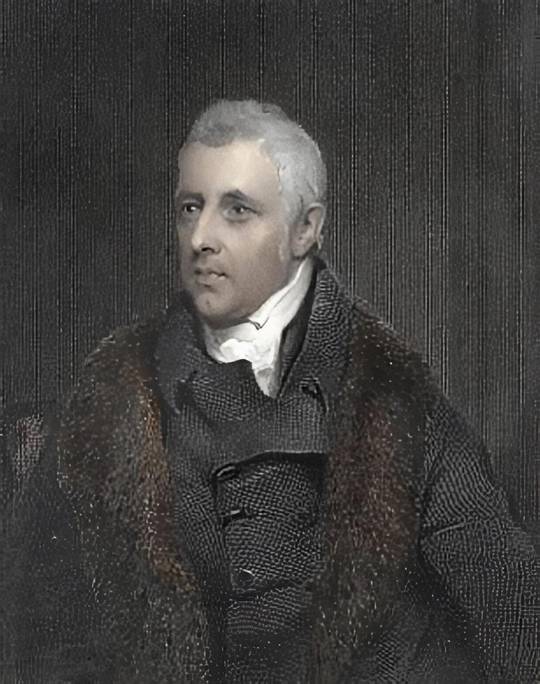Dudley Ryder (1762-1847) Second Baron Harrowby from 1803. First Earl of Harrowby from 1809. Lord President of the Council, 1812-27. Educated at Harrow and St John’s College, Cambridge (seven years ahead of Castlereagh). MP for Tiverton, 1784-1803, where he was a friend and follower of Pitt. Appointed to the Privy Council in 1790. He was Vice-President of the Board of Trade, 1790-1801, where he worked closely with Charles Jenkinson, who described him as having ‘a very sharp understanding, but a wretched mind, or a very distempered body which operates on his mind. … This last circumstance disqualifies him from business.’1 Glenbervie said: ‘there appears to be a certain quickness in his temper which, when he fails in venting it in a species of captious smartness or repartee, renders him what in another familiar expression is called miffy’.
In 1801 Harrowby fell ill and gave up office in November; he was not close to Addington. Through Pitt’s patronage he became Foreign Secretary in 1804-5 before a fall caused him to resign, then he became Chancellor of the Duchy of Lancaster for the remainder of Pitt’s life. He returned to the Cabinet in 1809 and, being close to Perceval, remained there as Minister without Portfolio until 1812, while his brother Richard was Home Secretary. Liverpool valued Harrowby’s intellect and his generally reliable support but made him Lord President, where his health, peevishness and intermittent work habits would not interfere with departmental duties. However, in the crucial negotiations concerning the return to gold in 1819, he made Harrowby Chairman of the House of Lords Special Committee, where he was more influential than the more junior Peel, his opposite number in the Commons. He was not a favourite of George IV; his only appearances in Royal correspondence concerned ceremonial matters and he gave notice in November 1820 of voting against the Bill of Pains and Penalties by which the King hoped to divorce Queen Caroline.
Towards the liberal side of the government and favouring Catholic Emancipation, Harrowby remained in office under Canning but was shunted out by Goderich. He was offered the premiership in December 1827 while the Goderich ministry was tottering but declined it. He was a ‘waverer’ on the Reform Bill in 1832 but told Mrs Arbuthnot that the Whig ministers were ‘the greatest rogues that ever lived, and their only claim to office is that they have put the country in such a state that nobody can govern it’2.
Harrowby’s house in Grosvenor Square was both the location to which Major Percy brought news of Waterloo on 21 June 1815 and the designated Cabinet meeting place on 25 February 1820, where the Cato Street conspirators hoped to assassinate them.
[1] Thorne, The History of Parliament: the House of Commons 1790-1820,” contains both the Jenkinson and Glenbervie quotes.
[2] Bamford and Wellington, The Journal of Mrs. Arbuthnot, 1820-1832, Vol. 2, p. 438.
